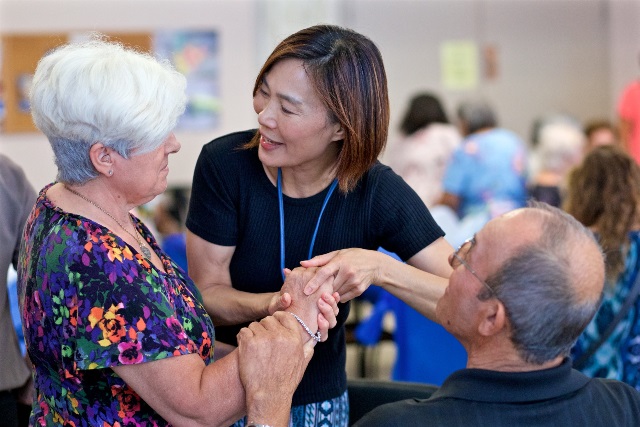By Brian Swainson
York Region’s two municipal long-term care homes have just begun participating in an 18-month national research study that will examine enhancements intended to improve the communication of information and choices available to long-term care residents, and to better understand their preferences regarding end of life care.
Referred to as BABEL (Better tArgetting, Better outcomes for frail ELderly), the study is being conducted by The University of Waterloo in partnership with The Canadian Frailty Network and is designed to review and identify the benefits of standardizing Advance Care Planning in long-term care.
The Principal Investigator for the BABEL study is Dr. George Heckman, MD, FRCP(C). Dr. Heckman is the Schlegel Research Chair in Geriatric Medicine and Associate Professor in the Department of Health Studies and Gerontology at the University of Waterloo, and an Assistant Clinical Professor of Medicine at McMaster University.
Dr. Heckman’s primary research interests include management of heart failure in long-term care and other frail seniors, primary care management of dementia, home care safety and vascular aging. He is an acknowledged expert in the field of frailty assessment, having previously served as the lead Geriatrician for the Waterloo Wellington Local Health Integration Network.
Staff at Newmarket Health Centre and Maple Health Centre, York Region’s two long-term care homes, received training from the Waterloo research team prior to launching the study. One facility will serve as an intervention site, implementing the enhanced approach to Advance Care Planning discussions, and the other facility will be a control site, for the purpose of assessing the impact of the BABEL approach in aligning residents’ Advance Care Planning decisions with their personal values, preferences and discussions with loved ones.
The study will not impact the current level of care and services the homes provide to their residents, but may lead to enhanced discussions surrounding Advance Care Planning in the sector overall.
Brian Swainson, Director of Seniors’ Services for York Region adds, “We are thrilled to partner with Dr. Heckman and his team to participate in the BABEL research study, as it strengthens York Region’s commitment to continuous quality improvement through innovation in resident-centred care.”
Information about the BABEL study is available at https://the-ria.ca/project/babel/
More information about York Region’s Long-Term Care Homes can be found at york.ca/longtermcare
Brian Swainson is the Director of Seniors’ Services for York Region’s Paramedic and Seniors’ Services branch in the Community and Health Services Department.




